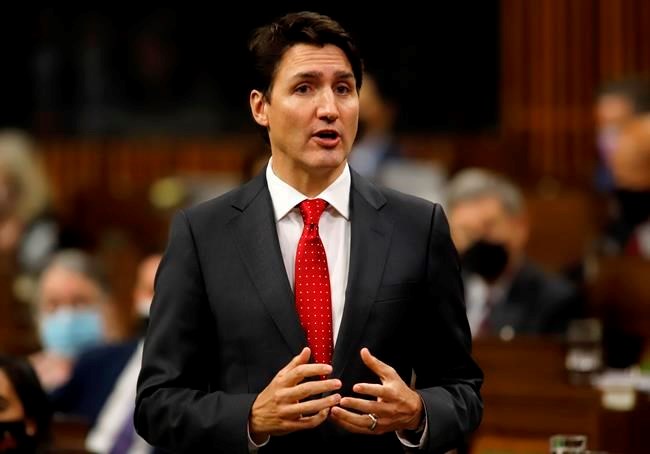OTTAWA — Prime Minister Justin Trudeau has taken off for a 10-day international trip, with the Russia-Ukraine conflict expected to be a major focus.
He will first fly to Kigali, Rwanda, Tuesday night to meet with the heads of the Commonwealth nations for the first time since 2018. Canada is planning to promote support for Ukraine and condemnation of Russia at the meetings.
The trip also takes Trudeau to Germany for the G7 Summit and then on to Madrid for a NATO Summit.
Ukrainian President Volodymyr Zelenskyy is planning to address leaders at both of those summits, as he continues to meet with world leaders to ask for financial and military support.
NATO leaders will be joined by delegations from Sweden and Finland, both of which have applied to join the alliance as a result of Russia's invasion of Ukraine, and leaders from both Japan and South Korea have said they plan to attend.
The prime minister is also attending a bilateral meeting with Spain's prime minister, Pedro Sánchez, during his busy itinerary.
Trudeau is planning to be back in the country in time for Canada Day celebrations on July 1.
He has finished a 10-day isolation period that just fit between his return from the Summit of the Americas in Los Angeles on June 11 and his departure for this stretch of travel.
The Prime Minister's Office says he began feeling symptoms of COVID-19 on June 11, but not until after his arrival in Canada. His plane landed in Ottawa at 8 p.m., according to his public itinerary.
He tested positive for COVID-19 on June 13, but his isolation was deemed to have begun two days earlier, when his symptoms began.
According to a May 22 version of the COVID-19 orders-in-council, international travel is considered to be higher risk by the Canadian government, as travellers could bring new variants of the virus into the country.
As a result, those who are fully vaccinated are supposed to monitor for symptoms of the virus for 14 days after they return from an international trip, and if any symptoms develop they're supposed to notify public health and begin 10 days of isolation. That's double the isolation time required by Ontario Public Health for those who test positive in the province.
Trudeau also tested positive for COVID-19 in January.
This report by The Canadian Press was first published June 21, 2022.
Sarah Ritchie, The Canadian Press


